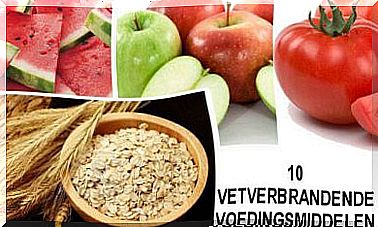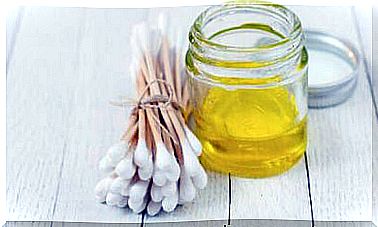The Diet For Gout: Everything You Need To Know

A diet for gout can help lower blood uric acid levels. However, it cannot cure the disease. However, it can reduce the risk of recurrent and painful gout attacks and may reduce the progression of joint damage.
People suffering from this disease who are on a diet for gout also need to take medications to control their pain and lower uric acid levels. In this article, we’ll show you the dietary recommendations and prohibitions to improve this condition.
What is gout?
The precipitation of uric acid crystals in the joints causes intense pain and gout. This is one of the most common metabolic disorders and a painful form of arthritis. It is caused by an increase in uric acid in the blood, known as hyperuricemia.
It does not usually cause any previous symptoms, although it can deposit in the joints, leading to a very painful inflammation that may be accompanied by a fever.
The body produces uric acid when it breaks down chemicals called purines. Although purines occur naturally in the body, a number of foods are rich in them. The body excretes uric acid through the urine.
To prevent gout attacks, or at least slow down joint damage, you can resort to certain foods as a method of reducing high uric acid levels.
Factors to consider when dieting for gout

You can consume foods that promote the elimination of uric acid to lower it in blood levels. A specific diet to lower blood uric acid levels should aim to control three key factors:
- Urine pH. It is important to try to follow an alkaline or alkalizing diet to slightly alter the pH of the urine and promote elimination. You can mainly achieve this by:
- Consume more alkaline foods, such as vegetables, potatoes, fruits, sweet potatoes, and salads.
- Avoid consuming foods rich in salt and do not add them to homemade culinary preparations.
- Avoid alcohol consumption completely, including beer and wine.
- Purine intake. You have to pay close attention to the food you eat and how you prepare it. When you cook food that contains purines, a large part of it ends up in the cooking water. Cooking is therefore a good way to reduce purines in food. Still, you should avoid broth.
- The intake of fructose. Once the body assimilates fructose, it metabolizes it into xanthine, a purine that eventually turns into uric acid. For this reason, experts recommend that people suffering from this condition consume only one piece of fruit per day and choose the fruit that contains the least amount of fructose.
Allowed food
- Protein. Eat mainly red meat and lean poultry, low-fat dairy products and lentils as protein sources.
- Complex carbohydrates. Eat more vegetables and whole grains, which contain complex carbohydrates.
- Vitamin C. A number of studies show that this vitamin can help lower uric acid levels. Ask your doctor if you should include a 500 milligram vitamin C supplement in your diet.
- Coffee. A number of studies suggest that moderate coffee consumption may be associated with a lower risk of gout. Drinking coffee may not be appropriate if you suffer from other medical conditions. Ask your doctor how much coffee you can consume.
- Cherries. There is some evidence that eating cherries is associated with a lower risk of gout attacks.
Forbidden foods

Alcoholic drinks promote the presence of purines and uric acid in the blood, which in turn means that they can trigger gout attacks.
- organ meats. Avoid meats such as liver, kidney and thymus, which contain significant amounts of purines and contribute to elevated blood uric acid levels.
- Red meat. Limit portion sizes of beef, lamb, and pork.
- seafood. Some seafood and fish (such as anchovies, shellfish, sardines, and tuna) contain more purines than others. However, the overall health benefits of eating fish may outweigh the risks for people with gout.
- Vegetables that contain a lot of purines. Several studies have shown that vegetables with a high purine content, such as asparagus and spinach, do not increase the risk of gout and recurrent gout attacks.
- Alcoholic drinks. The consumption of beer and spirits is associated with an increased risk of gout and recurrent attacks. Moderate wine consumption does not seem to increase the risk of gout attacks. Avoid drinking alcoholic beverages during gout attacks and, above all, limit your beer consumption.
- Sugary foods and drinks. Limit or avoid sugary foods, such as sweetened grains, baked goods, and candies. Limit your intake of naturally sweet fruit juices.
Conclusion
Dieting for gout can help limit uric acid production and boost its elimination. While it may not be enough to diet to lower blood uric acid levels without drugs, diet can help reduce the number of attacks and lessen their severity.









